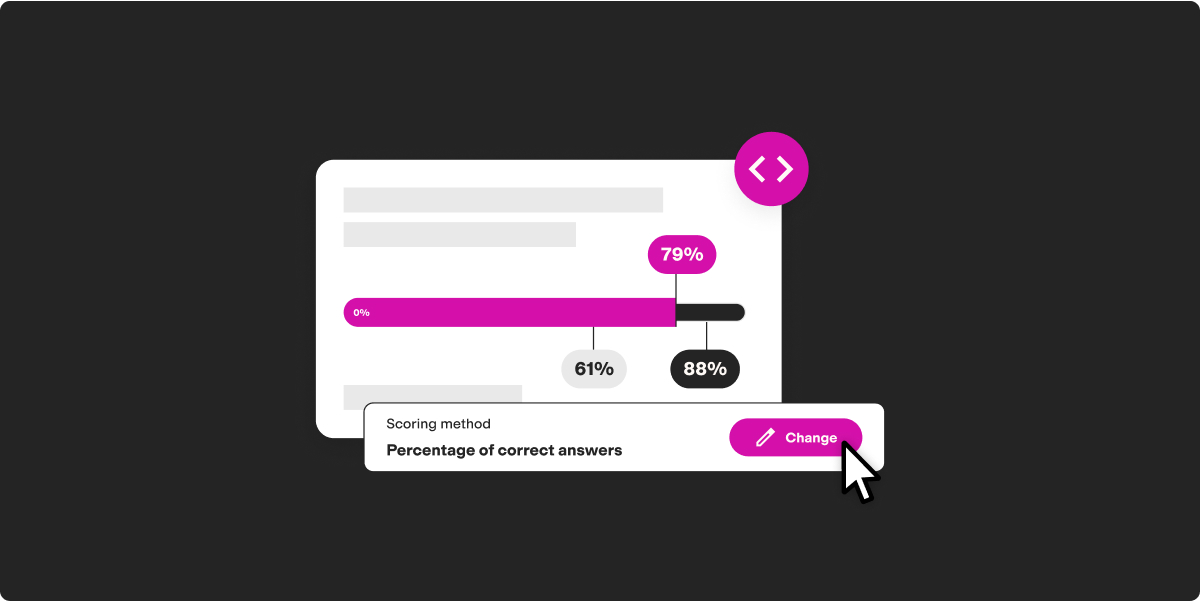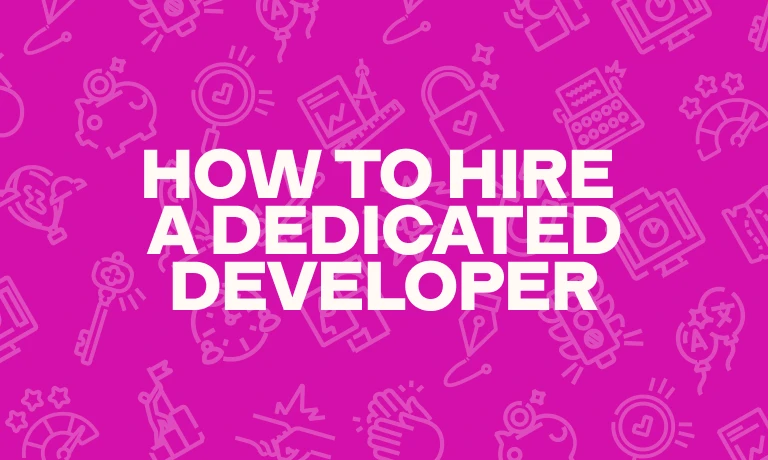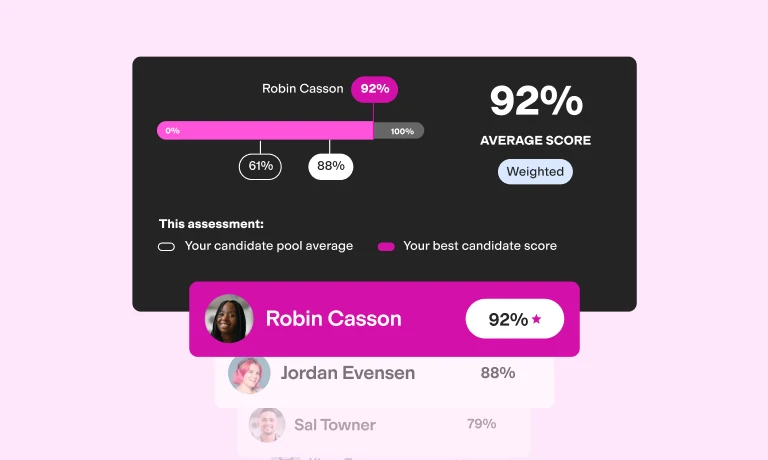From politics to customer success: Skills assessment reshaped Silvia's career
Landing a job isn’t easy, especially if you’re an international student looking to work in the U.S. Add in a global pandemic and uncertainties about your career path and that task becomes even more complicated.
As a political science major, Silvia had spent the best part of the last few years in fields like social research and data collection, even spending six months working on Bernie Sander’s 2020 presidential campaign. Then, COVID hit.
Silvia had to move back to Italy at the time. Short of options, she decided to take on a position as a nanny. A year later, she was working in the same role for a family in Canada, but it was clear that her long-term future didn’t lie in childcare or politics, for that matter.
On the job market again, Silvia found she was increasingly drawn to sales and customer support roles, but it was difficult to see how she could push her career in this new direction. Although she had developed a wide range of skills, she found it hard to showcase them in a way that would impress prospective employers.
“Nannying gives you certain skills, including time management, problem-solving, and communication. And then, with the work I'd done previously in politics, there were a lot of components that were very relevant to sales and customer success. But I couldn't really put them on paper and say, hey, because I was a field organizer for this political campaign, I can sell your product.” - Silvia Pellegrino, Digital Customer Success Advisor, TestGorilla
How do you start a career in sales without experience or connections?
“My network is not necessarily related to the world of SaaS (software as a service). I studied political science and global development. Most of my colleagues from the university were working in different fields now.”
Like many candidates, Silvia started looking for open positions on popular job boards. She researched different roles and titles on these platforms, then narrowed her search to those that matched her interests.
Are you a job seeker?
Visit our job seeker hub to get help with your assessment, find your dream job and more.
After creating a shortlist of jobs, she would research companies further on their website and social media. She recommends paying attention to a few key details here:
If you’re applying to a smaller organization, ensure it sells a real product that provides value to customers or clients. Review sites like Trustpilot can help you gauge the company's credibility.
Pay attention to the wording in the company’s job descriptions. Do they offer fair compensation for the role and responsibilities required?
How transparent is the company? Does the hiring manager clearly communicate details like compensation, benefits, and hiring policy?
Read up on the company’s mission statement. Does its values, ethics, and work approach align with yours?
For larger companies, where you don’t have to worry as much about credibility, it’s worthwhile to check Glassdoor and learn more about how employees rate the working environment.
Bad hiring practices = demotivated candidates
Despite all the effort, Silvia still had to endure many bad hiring experiences before finding the right opportunities. The biggest problem was that too many employers actively made it harder for candidates to apply for jobs and showcase their skills.
“I often found job applications where, after filling out the initial form, I had to re-enter the same information when submitting my resume. It took an extra 2 hours to tailor my resume, copying and pasting details for education, past jobs, and references.”
She was especially reluctant to put all this additional effort into the application because, as an international student, her immigration status meant that many employers might refuse to hire her as they would need to sponsor her for a work visa.
Silvia’s biggest frustration was the lack of assurance that a hiring manager would review her resume or cover letter.
“It's hard to put your skills on paper and explain them clearly to somebody if you're not in an interview. And if getting to that point requires them first to screen your CV and cover letter, then it feels like you're just begging them to allow you to get in front of a hiring manager and prove you're worthy. So, you spend hours putting together this proposal, and the reality is the bigger the company is the less the likelihood that they're actually going to read that.”
Of course, even when her application was considered, it usually took weeks before the employer replied or provided feedback.
The best insights on HR and recruitment, delivered to your inbox.
Biweekly updates. No spam. Unsubscribe any time.
The turning point in Silvia’s job search? Skills assessments
Although Silvia was aware of skills assessments, they were not as common in her previous industry. When they were used as a hiring tool, it was usually at later stages of the process, after initial interviews and resume screening. However, soft skills and language tests were often required for sales and customer success roles.
Even still, TestGorilla’s application process was different. Silvia initially applied for a product advisor position and was surprised to be asked to take an assessment immediately before any other type of preliminary screening.
“I remember when I first took the assessment at TestGorilla, I thought this feels too easy.”
After spending so much time writing tailored cover letters and revising her resume for different positions, taking a custom assessment seemed relatively straightforward. After all, she had nothing to lose and felt fairly confident in her skills. Of course, she was still pessimistic about her chances of landing the job.
“I was like, okay, this is refreshing. I'll never get it, but at least I'll hear back. I'll know where I stand, and I'll know what my skills are.”
Sure, there was some initial anxiety about the type of questions that would be asked and the difficulty level of the assessment, but going through the candidate guide helped Silvia understand what the process would look like from a technical perspective. Attempting practice questions gave her confidence in her ability to do well on the tests.
“My thinking was if I knew the answer, great. If I don’t know the answer, then maybe this is not a skill that I'm good at.”
Upskilling and blazing a new career path
Silvia scored in the top 3% out of 700 applicants. Her results not only renewed her self-confidence in her abilities but also allowed her to land a sales job at TestGorilla, where she could further hone those skills.
“My assessment results showed that my weakest skill in sales was closing. The ability to identify that weakness was incredibly helpful both for me and my manager. It became the first thing we focused on when drafting an L&D plan during my first few months at TestGorilla.”
Silvia's experiences with skills-based hiring have cemented the importance of using this approach right at the beginning of the hiring process.
“I would only opt for tools like resumes, cover letters, or screening interviews if you take the time to look at each one. If you don't have the time, use assessments to rank candidates for you based on objective criteria. That way, you can let candidates who don’t make the cut know as early as possible, and you can spend quality time with those who do.”
This focus on skills also helped her move into other areas at the company, as Silvia understood the requirements for different positions and was encouraged to upskill and become a viable candidate for these roles.
A few years into her tenure, she took another skills assessment and secured a role as a customer success specialist at the company. Yet another sign of the massive impact of skills-based hiring (when applied effectively) on a candidate’s career.
“For me, the impact was massive. I was able to change the course of my career. Thanks to skills assessments, I got the chance to enter a completely new field and carve out a path for myself”
Related posts
You've scrolled this far
Why not try TestGorilla for free, and see what happens when you put skills first.




















